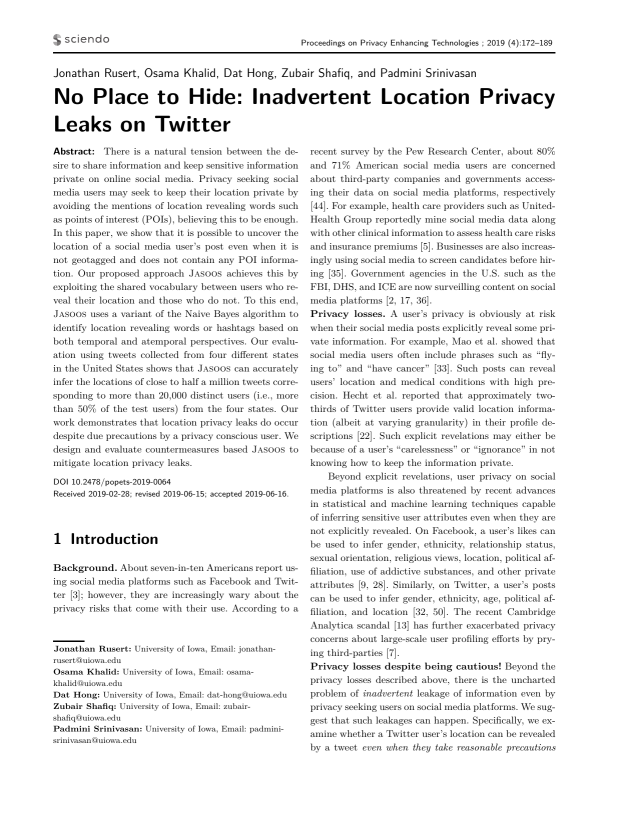No Place to Hide: Inadvertent Location Privacy Leaks on Twitter
Authors: Jonathan Rusert (University of Iowa), Osama Khalid (University of Iowa), Dat Hong (University of Iowa), Zubair Shafiq (University of Iowa), Padmini Srinivasan (University of Iowa)
Volume: 2019
Issue: 4
Pages: 172–189
DOI: https://doi.org/10.2478/popets-2019-0064
Abstract: There is a natural tension between the desire to share information and keep sensitive information private on online social media. Privacy seeking social media users may seek to keep their location private by avoiding the mentions of location revealing words such as points of interest (POIs), believing this to be enough. In this paper, we show that it is possible to uncover the location of a social media user’s post even when it is not geotagged and does not contain any POI information. Our proposed approach Jasoos achieves this by exploiting the shared vocabulary between users who reveal their location and those who do not. To this end, Jasoos uses a variant of the Naive Bayes algorithm to identify location revealing words or hashtags based on both temporal and atemporal perspectives. Our evaluation using tweets collected from four different states in the United States shows that Jasoos can accurately infer the locations of close to half a million tweets corresponding to more than 20,000 distinct users (i.e., more than 50% of the test users) from the four states. Our work demonstrates that location privacy leaks do occur despite due precautions by a privacy conscious user. We design and evaluate countermeasures based Jasoos to mitigate location privacy leaks.
Copyright in PoPETs articles are held by their authors. This article is published under a Creative Commons Attribution-NonCommercial-NoDerivs 3.0 license.

